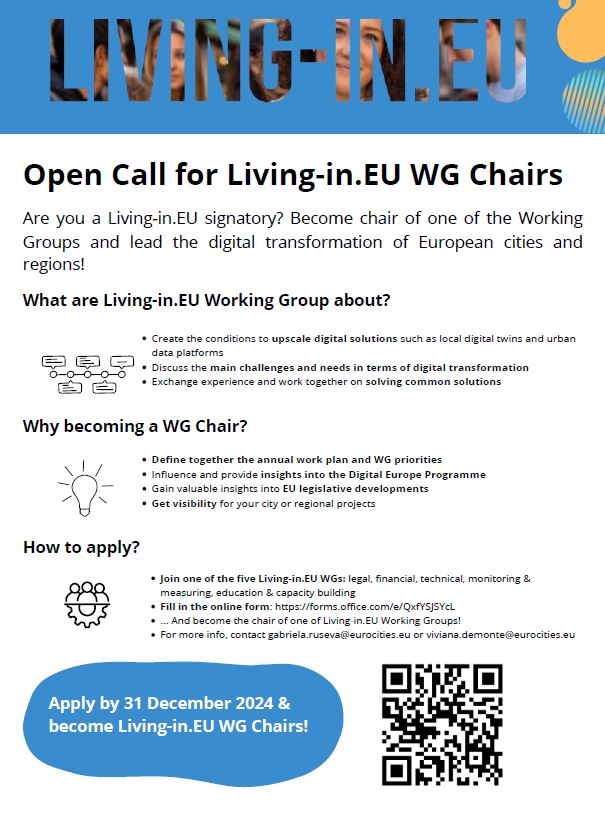The journey toward digital transformation is a priority for local governments, aligned with broader European goals such as those set out in the NextGenerationEU recovery plan and its Recovery and Resilience Facility Plan (RRF). Yet, despite their shared commitment, these public authorities face significant challenges in financing their digital ambitions and navigating complex administrative landscapes.
Funding challenges for cities’ digital ambitions
As Arnis Gulbis, Director of Riga Digital Agency, underscores, “financing is a crucial component of our digital strategy, and we continuously seek new funding opportunities to expand and enhance our digital initiatives.”
“More specifically, we need funding for large-scale projects like smart transportation systems and digital healthcare infrastructure,” explains Gulbis. The city, keen to leverage technology for improved public services, has already allocated approximately €10 million towards digital transformation in the last year, but the need for further investment remains pressing.
Bridging the funding gaps
However, for many cities, the journey is far from straightforward. “There are still gaps in funding, especially for projects like digital twinning, IoT, data spaces and cybersecurity,” says Alma Serica, EU Policies and Projects Officer of the City of Arezzo.
For Arezzo, like many other cities, finding the necessary funding is not just about meeting current needs but also about bringing innovation. Very often, a significant portion of IT budgets is consumed by maintaining existing infrastructure, which leaves little room for introducing innovative solutions in cities.
Amersfoort is facing a similar challenge. “In Amersfoort, the largest part of the IT capacity is used mostly for maintaining infrastructure – software and hardware – with 85% going toward capacity and digital infrastructure,” notes Bauke Keulen, Strategic Advisor on Digitalisation in Amersfoort. “In many municipalities, the total IT-expenditures is only 3% of their total budget. Consequently, digital transformation should not be only seen as a cost-driven discussion but rather as more structural transformation,” he adds.
Reskilling the workforce
The Covid-19 pandemic further exacerbated financial constraints, forcing cities to suspend several projects and look for alternative funding sources, including regional, national and EU funds. Yet, as several officials noted, accessing these funds can be challenging. Lengthy application processes, bureaucratic hurdles, and stringent co-funding requirements often pose barriers, particularly for smaller municipalities that lack the resources to navigate such complexities.
The shortage of skilled personnel is another critical issue that many cities face. Amersfoort has made substantial investments in training city officials, equipping them with the skills needed to navigate digital transformation.
Rather than creating new positions, Amersfoort has “trained 120 city officials on digital transformation pathways.” In Arezzo, Italy, the focus is on building digital capacity from within. The decision to “reskill existing staff over hiring new personnel” reflects both a practical response to financial constraints and a strategic investment in human capital.
Cutting the red tape
However, reskilling requires substantial funding and resources, which are not always readily available. In addition to financial and personnel challenges, cities must also grapple with the administrative burdens associated with EU funding programs. As Arnis Gulbis, Director of Riga Digital Agency, points out, “accessing funding often involves navigating complex application processes and stringent eligibility criteria, which can be a barrier, especially for smaller projects or those that require quick implementation.”
Despite these hurdles, there is a strong belief among city officials that streamlined processes and more accessible funding could make a significant difference. Direct EU funding to local and regional administrations can simplify the application process currently required to participate in European funding programmes, such as Horizon Europe and the Digital Europe Programme.
However, even these programmes come with challenges, particularly the co-funding requirements that can be prohibitive for smaller municipalities. For many, a longer-term, more stable approach to funding is needed. In Amersfoort, for example, there is a focus on “the definition of long-term objectives and long-term financing,” ensuring that digital transformation efforts are not just immediate but sustainable over time.
Mix and match of funding sources
Co-funding and accessing multiple types of funding are also a priority for regional authorities. Charles Brunet, Information System Director at Grenoble-Alpes Metropole, highlights that they often need to combine different sources of national, regional and European funding, to realise their strategic objectives linked to digital transformation.
However, European funding is not always in line with their matureness, and regional and local priorities. European funding pushes towards very targeted topics requiring strong technical and technological maturity, whereas public authorities have in a first instance to consolidate information systems in order to ensure their strategic objectives before advancing towards innovative technologies on specific domains.
Digital Flanders also tries to pull together a variety of funding sources, exploring private-public partnerships and accessing national and regional funding. “In Digital Flanders we always look out for fundings that could allow us to innovate and bring new digital solutions that can benefit our citizens,” explains Martine Delannoy, from Digital Flanders, Flemish Digital Transformation Agency.
They search for funding to upscale solutions rather than develop pure innovations, also trying their best to developing solutions that could be continued in a sustainable way and be also re-used by smaller cities and governments in the region. This role of the region in providing support to smaller municipalities resonates across the regional members of Living-in.EU.
The Emilia-Romagna region also access various funding sources and partnerships, with a model which not only focuses on technology, but also gives priority to citizens, skills, and collaboration among different departments. In this context, Francesco Raphael Frieri, Director-General for Resources, Europe, Innovation and Institution and Chief Digital Officer in Emilia-Romagna, highlights the importance given to data.
Data is at the centre of the region’s political direction and holds the potential to improve services for all. For this reason, the region invests in testing data governance models, stimulating data sharing among sectors and running initiatives, such as supercomputing technology, cybersecurity projects and artificial intelligence for the societal good.
Looking ahead
In response to these challenges, city and regional officials suggest several improvements for EU funding programmes. There is a call for greater flexibility and tailored support that better reflect the diverse needs of different cities and regions. Programmes should mandate data openness and prioritise areas like transport and mobility, as cities call for targeted funding that supports both innovation and practical outcomes.
“To better meet our needs, EU funding programmes should consider streamlining application and reporting processes, increasing support for capacity building within local administrations and enhancing opportunities for cross-border collaborations,” says Arnis Gulbis, Director of Riga Digital Agency.
There is also a strong consensus on the need for more support for smaller municipalities, particularly in terms of funding, training, and fostering cooperation opportunities that could help bridge the resource gap. Simplifying the application, monitoring and reporting processes for EU funds is another recommendation that could reduce administrative burdens and speed up project implementation, making it easier for cities to access essential resources.
Looking ahead, regions like Emilia-Romagna and Digital Flanders highlight the importance of funding instruments that support not just innovation but also the upscaling of successful initiatives and the maintenance of core services. This approach would help public authorities implement sustainable and scalable solutions, ultimately improving citizen-oriented services.
Check out the article on Eurocities website here.
This article is based on interviews on the financial needs to support the digital transformation of public authorities across the EU, conducted with members of the Living-in.EU Financial working group in the period January-June 2024. The full interviews are available in the financial working group.









